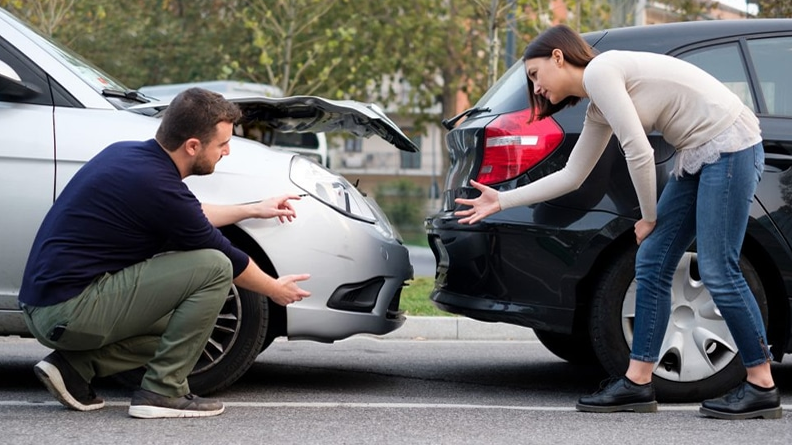Tips for Maintaining Your Car After an Accident

When your vehicle is damaged in an accident, finding a trustworthy collision repair shop becomes a top priority. Your car is not just transportation — it’s an investment and a part of your daily life. Choosing the right repair center, such as clinecollisioncenter.com, ensures your vehicle is restored to its original condition safely, efficiently, and professionally. This guide will help you understand what to look for in a collision repair facility, how to evaluate service quality, and why professional care makes all the difference.
1. Start with Experience and Reputation
When it comes to collision repair, experience matters. A shop that has been serving customers for years has likely developed solid repair processes, trained technicians, and reliable customer service. Always look for auto body shops with proven track records in your community.
Reputation can be assessed through customer reviews, testimonials, and word of mouth. Online platforms like Google Reviews, Yelp, or Better Business Bureau listings can give you insights into how a shop handles repairs, customer service, and guarantees.
2. Check for Certifications and Training
A professional collision center should employ certified technicians. Certifications from organizations such as I-CAR (Inter-Industry Conference on Auto Collision Repair) or ASE (Automotive Service Excellence) show that the team is trained in the latest techniques and safety standards.
Certified shops stay current with new vehicle technologies, including hybrid and electric systems, which require specialized repair knowledge.
3. Evaluate the Quality of Equipment and Technology
Modern vehicles are designed with complex materials and systems — aluminum, high-strength steel, and computer-controlled components. Repairing these requires advanced diagnostic tools, precision measuring systems, and manufacturer-approved paint booths.
Before committing, ask the shop what kind of equipment they use. Shops that invest in advanced technology demonstrate a commitment to accuracy and quality.
4. Request a Detailed Estimate
A transparent estimate helps you understand what you’re paying for. Professional shops provide itemized quotes covering labor, parts, materials, and other services.
Avoid estimates that seem vague or significantly lower than others. Low quotes might indicate the use of inferior materials or shortcuts in workmanship. Instead, focus on value — quality repairs that ensure safety and long-term reliability.
5. Inspect the Facility
A well-organized, clean, and professional-looking facility is often a reflection of the shop’s attention to detail. Visit the location, if possible, to observe how vehicles are handled.
Look for proper lighting, equipment organization, and whether technicians seem professional and courteous. These are small indicators of a shop that cares about its customers and their vehicles.
See also: Opera Browser Testing: Automating Cross-Browser Tests With Selenium
6. Ask About Warranties and Guarantees
Reputable collision repair centers stand behind their work with warranties. A solid warranty protects you from potential issues after the repair and shows confidence in the quality of service provided.
Always clarify what the warranty covers — paint, parts, labor, or all three — and how long it lasts.
7. Understand the Insurance Process
If your repair involves an insurance claim, the process can be confusing. Many high-quality repair shops assist customers in dealing with insurance companies, streamlining paperwork and communication.
Working with a shop that’s experienced in insurance coordination ensures that repairs are completed promptly and that you receive the maximum coverage available.
8. Consider Customer Service and Communication
Effective communication is a key factor in choosing the right collision repair shop. From the moment you call for an estimate to the day you pick up your repaired car, you should feel informed and supported.
A good shop will provide regular updates about repair progress and expected completion times. Friendly, professional communication helps build trust and gives you peace of mind.
9. Look for Local, Trusted Repair Experts
Supporting local businesses not only helps your community but also often means you’ll receive more personalized service. Local shops rely on their reputation and customer satisfaction to stay in business, which often translates into better attention to detail and customer care.
For example, Cline Collision Center is a trusted name in professional auto body repair, offering expert craftsmanship and modern equipment to restore vehicles safely and efficiently. Choosing a reputable local shop like this can make all the difference in your repair experience.
10. Compare Turnaround Times and Convenience
While quality should never be rushed, turnaround time matters — especially when your vehicle is essential for daily life. Ask how long the repair is expected to take and whether the shop offers additional conveniences, such as rental car assistance or towing services.
Balancing efficiency and attention to detail ensures your car is repaired properly without unnecessary delays.
Final Thoughts
Choosing the right collision repair shop can seem daunting, but by focusing on experience, certification, communication, and customer trust, you can make a confident decision. Remember to research, compare, and always prioritize quality and safety over cost.
When in doubt, professional centers like clinecollisioncenter.com exemplify what you should look for — skill, transparency, and dedication to customer satisfaction. With the right choice, your car will look and perform as if the accident never happened.




